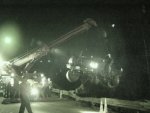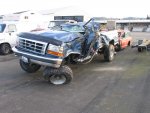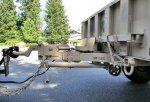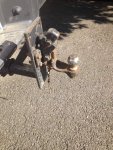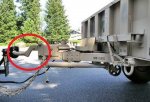Don't know how often and don't care, it's their responsibility. If you can do the simple things to ensure your vehicle is in the proper working condition, you are not competent enough to do more complex tasks. That's why some states require annual safety inspections, because there are so many incompetent people out there who can't maintain a vehicle safely. Same goes for hitches, if the bolt aren't torqued correctly, they will fail/egg holes.
If you don't care about this stuff, why are you even bothering to post about it?
I think you have pretty good idea of how often the average person checks their hitch mounting hardware, yourself likely included subsequent claims notwithstanding: Not all that often, if ever. Which makes advice to be conservative in how much to work it all the more appropriate.
I'll grant that my experience was very atypical, but one atypical experience may be all that someone pushing the limits gets. And I wasn't even pushing any limits. I and everyone who saw that wreck believes I was lucky to walk away with my life, let alone the only medical care required being 3 stitches in a finger and some chiropractic care.
I check mine regularly. But of course, I'm not a buffoon. If you are smart you use a visual product to make it a simple 10 second job. I also do those other simple things like check tire pressure, bearings, brakes on my trailer, emergency break away, ect.
Well even if I question that, let's say you actually do. Do you assume everyone you are giving advice to does?
So, did you ever do this on the pick-up that rolled?
No. As I noted, it was not my truck.
The one you pictured is bent due to backing up if I remember the thread correctly. If you notice in the other picture, there are rust marks where the pintle use to be mounted in the highest position.
You do not remember correctly.
Sorry, experience towing with the pintle mounted in said configuration trumps your I've seen pictures of them bent from backing up makes them unsafe claims.
You mean the experience you have not demonstrated? The same experience you used to justify an opinion that a wheeled tongue jack on an M101A2 is unnecessary because it's always so easy to lift and manuever even a fully loaded trailer?

And it's not just backing up, it's how the buff and draft forces are amplified by the leverage and the end effect on flat plate and hitch receivers, lighter duty ones in particular.



